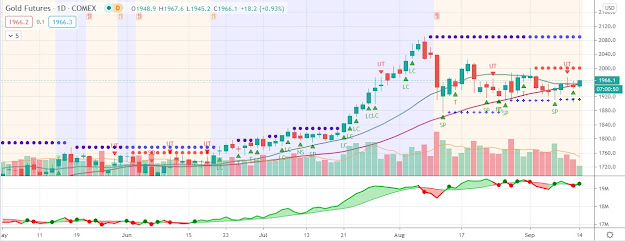Gold price dip below $1,600 per ounce on Thursday morning sell-off was fueled by strength in the U.S. Dollar Index
 The gold price dip below $1,600 per ounce on Thursday morning sell-off was fueled by strength in the U.S. Dollar Index (DXY), which advanced 0.5% to 78.42.
The gold price dip below $1,600 per ounce on Thursday morning sell-off was fueled by strength in the U.S. Dollar Index (DXY), which advanced 0.5% to 78.42.Yesterday’s gold price rally coincided with widespread gains in many dollar-denominated asset classes, fueled by a 0.4% rise in the euro currency to 1.3585 against the greenback. Strength in the euro came amid rising hopes that euro zone officials were considering a more robust financial plan to stem the tide of the sovereign debt crisis. One measure being discussed would be to leverage the €440 billion European Financial Stability Fund (EFSF) to allow for additional funds to be borrowed – likely from the European Central Bank (ECB) – without increasing the actual size of the EFSF.
While the idea of leveraging the EFSF helped propel the markets higher on Tuesday, such a plan carries with it considerable risks. Most importantly, it would put German and French taxpayers on the hook for further losses should the financial condition of Greece continue to deteriorate. Additionally, it would create the potential for further moral hazard risks by other members of the PIIGS, who may not feel as much pressure to get their own financial houses in order.
Regardless of the market’s short-term reaction to the ongoing European developments, Greek sovereign debt continues to signal that a default is looming. As John Hussman, Ph.D. – founder of the Hussman Funds – noted in his weekly market comment, “The yield on 1-year Greek government bonds closed above 135%. As I’ve noted in recent weeks, the bond markets continue to reflect expectations of certain default on Greek debt. All they are working out now is the recovery rate.”
The impact of a Greek default on the gold price would be quite uncertain in the short-term – chiefly due to the potential for broad-based liquidation in financial markets. If the financial position of the euro zone were to improve following Greece’s exit, the price of gold could come under additional pressure. However, a Greek default could instead lead to further destabilizations in the European banking system, which would be bullish for the gold price in the months ahead as policy makers implemented pro-inflation policies to offset the deflationary headwinds.



Comments
Post a Comment